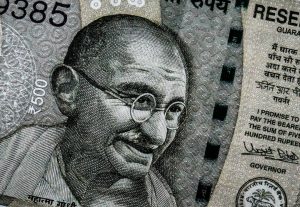HDFC Prepaid Forex Card vs. Credit Card: Which is Better for Travel?
When it comes to traveling abroad, there are several factors to consider in order to have a hassle-free experience. One of the most important decisions to make is how you will handle your finances while you are away from home. In this article, we will compare two popular options – the HDFC Prepaid Forex Card and the credit card – to help you decide which is better for your travel needs.
The HDFC Prepaid Forex Card, as the name suggests, is a prepaid card that allows you to load multiple currencies onto a single card. It offers the convenience of carrying multiple currencies in a single card, eliminating the need to carry different currencies or exchange money at every destination. On the other hand, a credit card is a payment card that allows you to make purchases on credit, which you will have to repay later.
One of the key advantages of the HDFC Prepaid Forex Card is that it offers a fixed exchange rate at the time of loading the card. This means that you can lock in the exchange rate when it is favorable, protecting yourself against any future fluctuations in the currency market. This can be particularly beneficial if you are traveling to a country with a volatile currency. In contrast, when you use a credit card, the exchange rate is determined at the time of the transaction, which means you are exposed to any changes in the currency value.
Another advantage of the HDFC Prepaid Forex Card is that it is a secure way to carry money while traveling. The card is protected by a PIN, which adds an extra layer of security. In case the card is lost or stolen, you can easily block it and get a replacement. Additionally, the card is not linked to your bank account, so even if it is compromised, your personal and financial information remains protected. On the other hand, if you lose your credit card or it gets stolen, you may have to go through a lengthy process to report the loss and block the card. Moreover, if unauthorized transactions are made on your credit card before you report it, you may be liable for those charges.
When it comes to acceptance, both the HDFC Prepaid Forex Card and credit cards are widely accepted. However, it is important to note that some merchants or establishments may only accept one form of payment. Therefore, it is always a good idea to carry both options to ensure you have a backup in case one is not accepted.
In terms of fees and charges, the HDFC Prepaid Forex Card may have an advantage over credit cards. While credit cards often charge foreign transaction fees, currency conversion fees, and cash advance fees, the HDFC Prepaid Forex Card may have lower or no such charges. Additionally, some credit cards may have high interest rates on cash advances, which can be expensive if you need to withdraw cash while abroad. On the other hand, the HDFC Prepaid Forex Card allows you to withdraw cash from ATMs at a nominal fee.
In conclusion, both the HDFC Prepaid Forex Card and credit cards have their own set of advantages and disadvantages. The HDFC Prepaid Forex Card offers the convenience of carrying multiple currencies, a fixed exchange rate, and added security. On the other hand, credit cards offer the flexibility of making payments on credit and wide acceptance. Ultimately, the choice between the two will depend on your personal preferences, travel plans, and financial needs. It is always a good idea to compare the terms and conditions of different cards and consult with your bank or financial advisor before making a decision.






